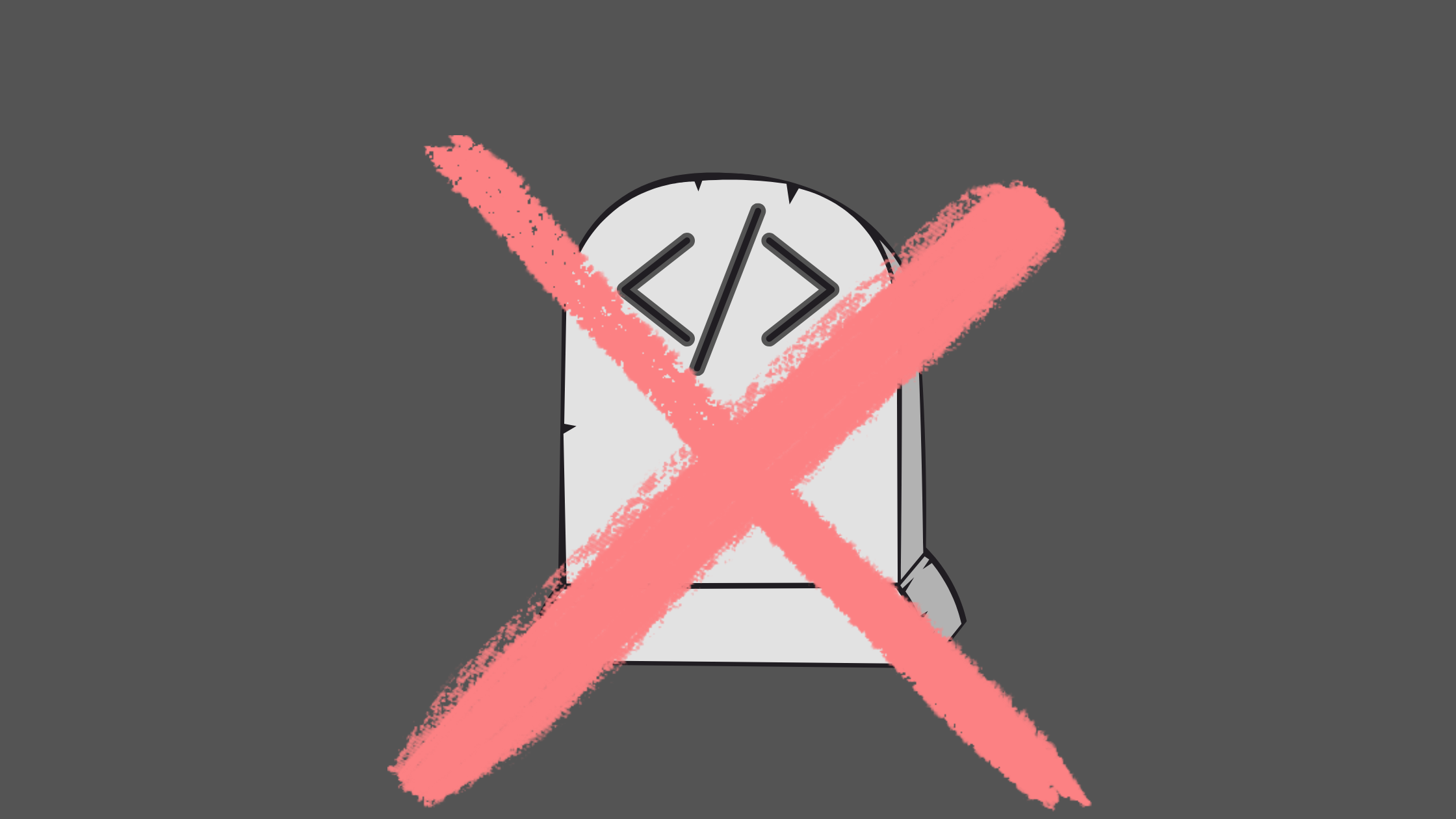Web development is not dead: Why web developers are still needed.

I decided to write this post to give a positive light on the future of web development. I don't like to be negative. I got my start in web development learning PHP and WordPress before I learned JavaScript. When writing this post, I thought long and hard about the future of web development. In short, web developers are still needed. As long as the internet is around, websites will exist. I think it is a good way to learn web development and use a wide variety of tools. In this article, I will give a few reasons why web developers are needed.
Customization and Flexibility
To start, the benefit of modern web development is customization and flexibility. Pre-built platforms and no-code tools offer templates, but they often lack the flexibility to create unique, complex features. Web developers can build custom solutions, tailored precisely to a business's needs or branding requirements, that would be impossible to achieve through templates alone.
You can find templates online and import them to create or modify a site. Customization can help a client site stand out. I like looking at various templates and deciding which one would fit best. I will alter the design to fit the client's needs. After all, who would want a boring website?
Performance Optimization
Website performance is another factor for modern websites. I don't want a slow-running site or one not set up for SEO. The worst cases can be a nightmare scenario to fix causing more headaches in the future.
Skilled developers know how to optimize code, assets, and data management for speed and efficiency, which impacts everything from SEO rankings to user retention. Web developers can optimize a site or application to be faster and more efficient than what's achievable with generic, one-size-fits-all solutions.
Security Expertise
It's going to be essential for me to talk about cybersecurity in this post. Security knowledge is an even more important tool for a web developer. I encourage other developers to learn about the various attacks and how to defend against them. Having cybersecurity knowledge will give you an edge.
Security threats evolve constantly, and pre-built platforms can have vulnerabilities that only a knowledgeable developer can address effectively. Web developers understand how to protect against common threats like SQL injections, cross-site scripting, and DDoS attacks, helping to keep sites and users' data safe.
Integration with Complex Systems
In the current state of web development, a web developer must learn integrations in website development. Plugins and apps are used on most platforms, a developer can create and test integrations before live deployment.
Many businesses use complex third-party integrations (e.g., CRM systems, payment gateways, and analytics tools) that require custom configuration and troubleshooting. Web developers can seamlessly connect these systems, enabling smooth operations across all aspects of the business.
Scalability
As businesses grow, they may need more advanced or custom features that exceed the capacity of no-code tools. Web developers can build scalable infrastructures and anticipate future needs, allowing the website or app to grow alongside the business without requiring a total overhaul.
A web developer will gain experience working on various projects. I started doing portfolio websites before doing e-commerce. It's best to find a solution the client has flexibility and scale over time if they want to make changes in the future.
Accessibility and Compliance
Ensuring that websites are accessible for users with disabilities and compliant with regulations like GDPR or ADA is a complex, nuanced task. Developers can help implement these requirements in a way that automated tools cannot match, ensuring inclusivity and legal compliance.
Long-Term Cost-Effectiveness
While no-code tools might be cost-effective upfront, they can become costly if you need advanced features or custom support. A web developer can build a solution that's cheaper to maintain and upgrade in the long run, reducing dependency on proprietary platforms with recurring fees.
I like that it is much easier to build a site and hand it over to a client with the variety of platforms available. However, there is still something a developer will have to research and take into consideration. For, example hosting providers can vary and there have been times in which a client wanted to switch hosting providers due to renewal fees. Self-hosted is an alternative, but it also has its pros and cons.
What's next?
In conclusion, web developers remain indispensable in the digital landscape because they offer expertise that goes beyond the limitations of no-code tools and templates. I don't see web developers going extinct any time soon. From building customized, high-performance websites to ensuring top-tier security, scalability, and accessibility, web developers bring skills that are essential for creating robust, user-friendly, and future-ready digital solutions. You hear constantly that web development is oversaturated because every developer knows web dev. As businesses strive to stand out and grow in a competitive online environment, the flexibility, precision, and foresight that web developers provide are irreplaceable assets.
